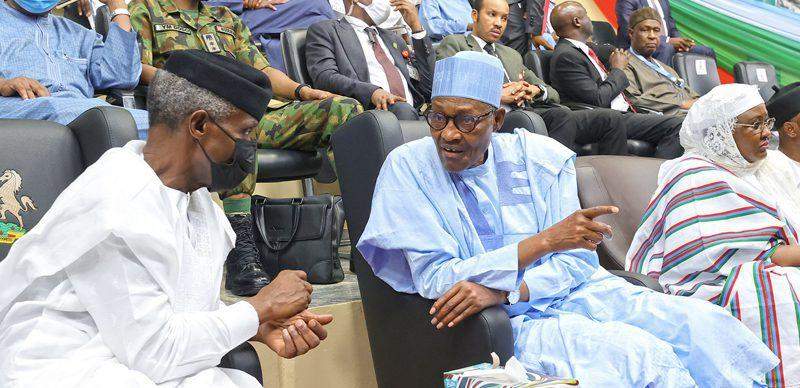As the tenure of President Muhammadu Buhari and other political appointees comes to an end, it has been revealed that the severance packages for these individuals will cost Nigeria about N64.72bn. The figures extracted from the Revenue Mobilisation and Fiscal Allocation Commission cover allowances such as hardship allowance, motor vehicle fueling allowance, and consistency allowance, among others.
The N64.72bn estimated package, however, does not include special assistants and state assembly members. According to the analysis, President Buhari is expected to receive N1.71m as basic salary and a few allowances, plus N10.54m as severance gratuity. Meanwhile, his vice, Yemi Osinbajo, is expected to take home N1.01m plus N9.09m severance pay.
There are 44 ministers under Buhari’s administration, each entitled to N6.73m, which includes basic salary, some allowances and severance pay. The 27 federal ministers and 17 ministers of state will receive N292.21m, with ministers getting N181.71m and ministers of states receiving N110.5m. Special advisers under the ministers will receive a final pay of N6.42m.
Of the 327 National Assembly members who will not be returning to the offices, the 76 senators will receive N7.14m each, while the House of Representatives members will get N6.75m each. A total of 18 state governors will be completing two terms of eight years in office on May 28, 2023. Each governor is entitled to a final pay of N7.32m while the deputy governor gets N6.96m.
Additionally, state commissioners are entitled to N4.42m each, with a total of 356 commissioners in Nigeria. Special advisers at the state level are entitled to N4.13m each, with a total of about 14,529 special advisers in the nation. With Rivers State Governor Nyesom Wike appointing 14,000 special advisers, the state is expected to pay a huge sum as final pay for its political appointees.
While the outgoing governors leave with generous pension benefits, mounting debts, and unpaid workers’ salaries, senior economist Paul Alaje described the pay and benefits as a burden on the states, leading to financial instability. He condemned the practice of paying exorbitant severance packages to political officeholders, stressing the need for more investment in infrastructural development rather than on politicians who have exited office.





